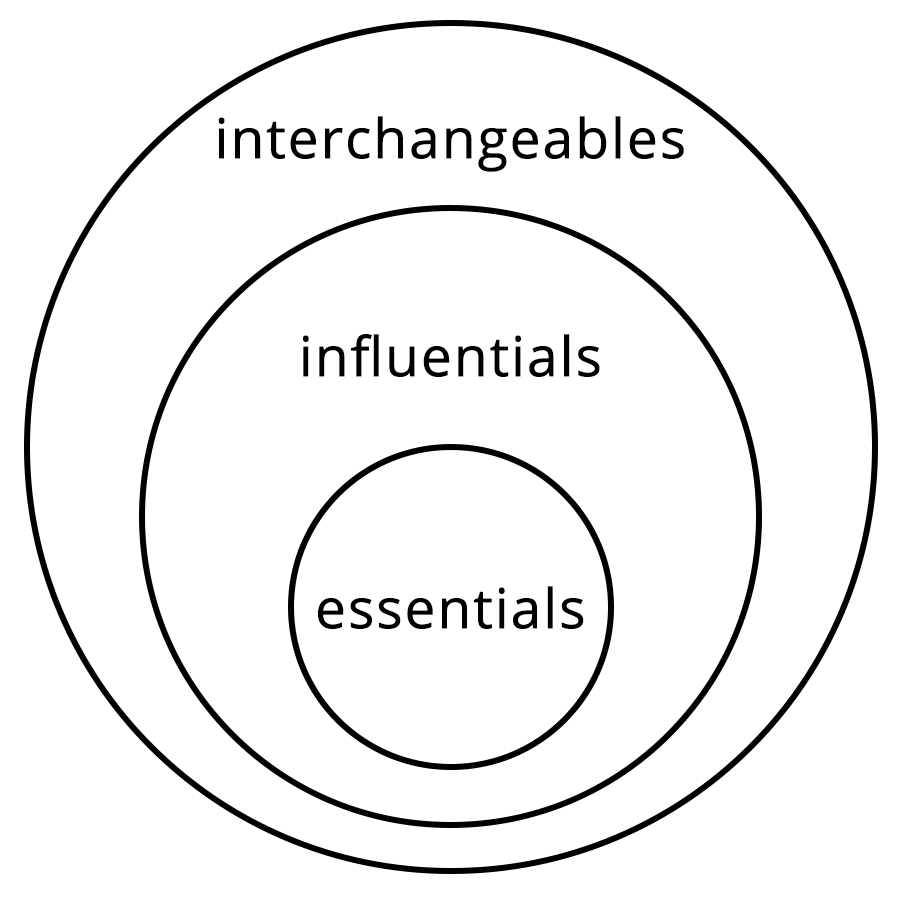Selectorate Theory
Selectorate Theoryis a game theoretic theory of politics and power that aims to explain political behavior and structure as a consequence of a leader's motivation to gain power and keep it as long as he can.
The theory posits that no leader can rule alone, and thus always has to satisfy some amount of key people. in autocracies that number is small, and in democracies that number is large.
The theory separates the rest of the population (apart from the leader) into three groups.
- interchangeables - are those who can influence the selection of the president (e.g, anyone who has voting rights)
- influentials - are those who actually influence (e.g, those who actually end up voting)
- essentials - those who's support is essential for the selection of the leader (e.g, the minimum amount of voters needed to be elected and the electoral college)

Leaders satisfy the essentials by giving them rewards. the more essentials there are the more expensive it is to reward them privately, and the more it's worth to create public goods from which both they and everyone else benefit. which is how the theory explains the difference between the amount of public goods in democracies versus autocracies.
The less essentials there are the easier it is to satisfy them and stay in control. thus a leader's incentive is to keep the amount of essentials as low as possible.
the incentive of the influentials and interchangeables is to increase the amount of essentials there are, such that the leader would have to use public goods to satisfy them.
The essentials incentive, when there are very few essentials, is to have even fewer, and thus align with the leader's. but past a certain point the essentials start to prefer having more essentials and more public goods rather than to have a small amount of essentials and gain private rewards - which then becomes contrary to the leaders goal, which stayed the same.
In the dictator's handbook the authors describe 5 rules which every leader must follow in order to gain power and keep it:
(1) The smaller the winning coalition the fewer people to satisfy to remain in control. (2) Having a large nominal selectorate gives a pool of potential people to replace dissenters in coalition. (3) Maintain control of revenue flows to redistribute to your friends. (4) But only pay friends enough that they will not consider overthrowing you and at the same time little enough so that they depend on you. (5) Don't take your friends' money and redistribute it to the masses. (Wikipedia)
The theory was developed by Bruce Bueno de Mesquita, Alastair Smith, Randolph M. Siverson, James D. Morrow, and introduced in The Logic of Political Survivaland The Dictator's Handbook.
Nice tag!